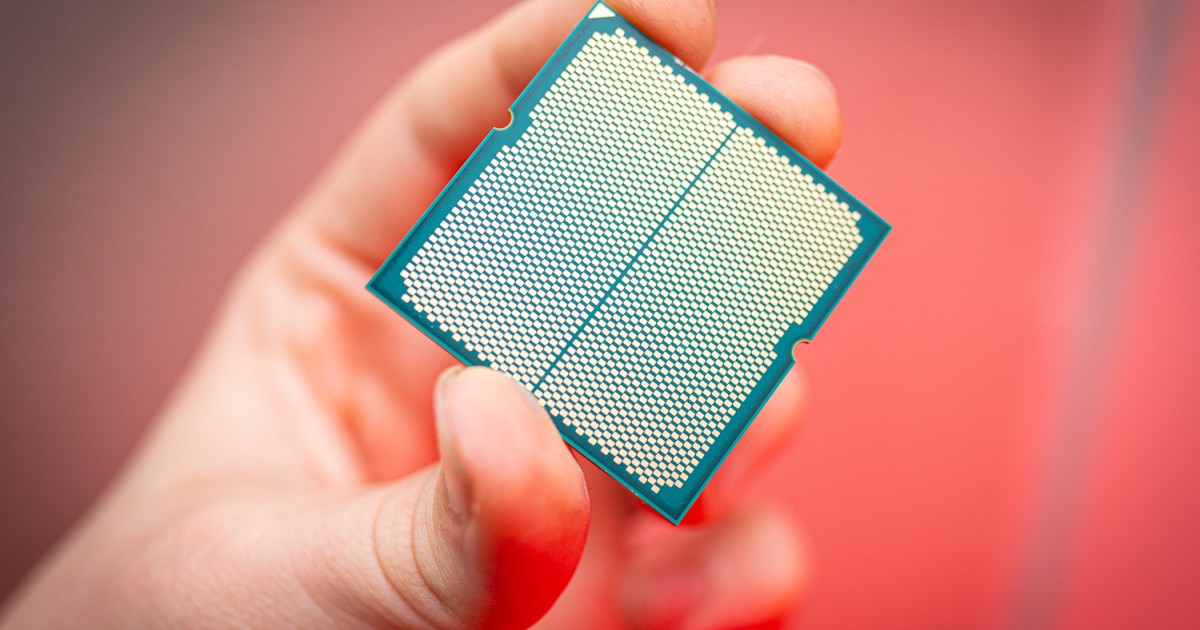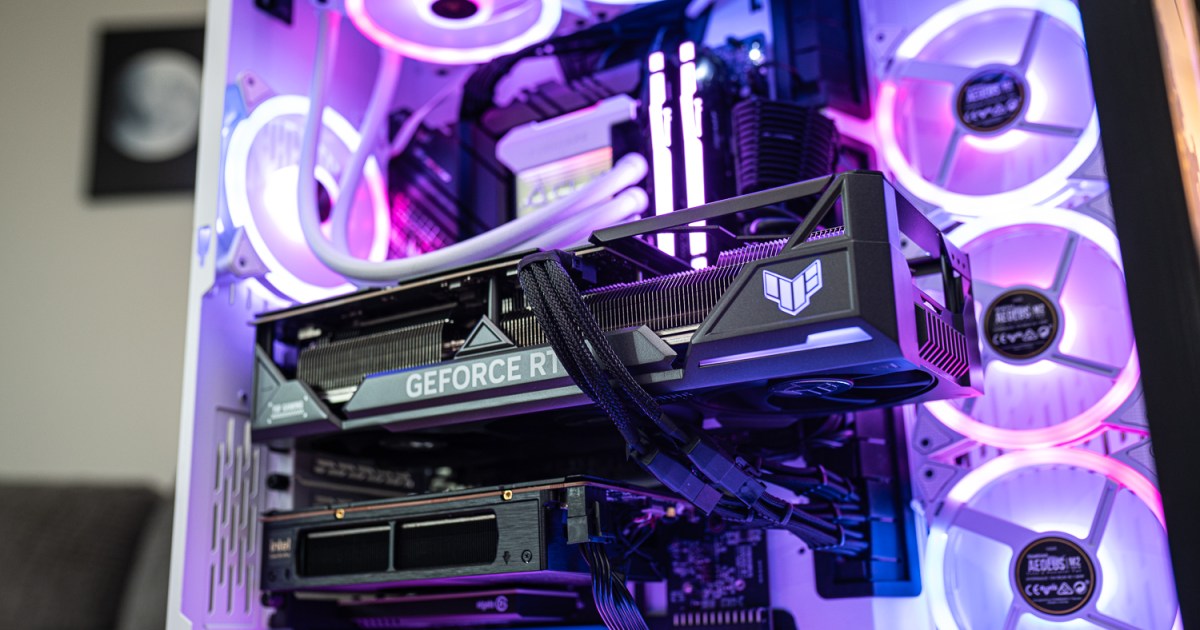Peak performance, upgradability, and solid pricing are all hallmarks of the best gaming desktops, and only a select few PCs meet that bar. We review dozens of desktops each year, and we’ve settled on a list of nine that are worth your time, and more importantly, your money.
For most gamers, we still recommend the Alienware Aurora R16. Although it lacks legs in terms of upgradability, Alienware’s balance of design, performance, and pricing is a winning combination. If you want a deeper look into why we chose the R16, or any of the desktops on this list, make sure to read our article on how we test desktops.
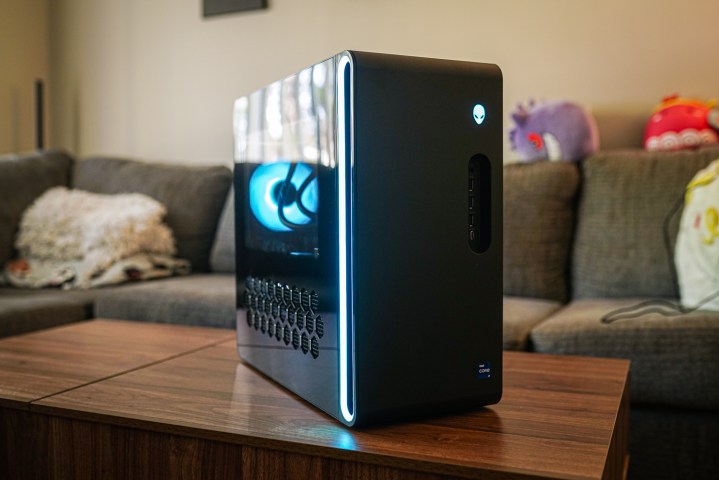
Alienware Aurora R16
The best gaming PC
Pros
- Much smaller than previous versions
- Cool and quiet during operation
- Several configuration options
- Competitively priced
Cons
- Alienware Command Center is a bit annoying
- CPU lacks integrated graphics and overclocking support
| Specification: | |
| CPU | Intel Core i7-13700KF |
| GPU | Nvidia RTX 4070 |
| RAM | 32GB DDR5 |
| Storage | 2TB NVMe SSD |
Why you should buy this: It’s an Alienware gaming PC built for the everyday gamer
Who’s it for: PC gamers who want a lot of flexibility in their build and don’t need to service their PC.
What we thought of the Alienware Aurora R16:
Alienware has a reputation problem, but the new Aurora R16 attempts to fix that. It’s the first time Alienware has abandoned the angular Aurora design we’ve seen for the past several generations, instead relying on a smaller mid-tower chassis that’s just as powerful, but takes up a lot less space.
It comes in cheaper, as well. Part of the reason Alienware desktops have a bit of a bad name is their price, but the Aurora R16 starts at just $1,300 for an Intel Core i7-13700F, RTX 4060 graphics card, 16GB of DDR5 memory, and a 1TB SSD. You can scale that up with the same processor, memory, and storage, but with an RTX 4070 Ti, for $1,950.
Alienware upgraded the internals a lot, but it’s the exterior of this machine that stands out. It’s around half the size of the previous version, all without compromising power or thermals. Alienware has scaled up the design, too. Now, you can find the RTX 4090 in the R16, as well as Nvidia’s RTX 40-series Super GPUs.

Alienware Aurora R16
The best gaming PC
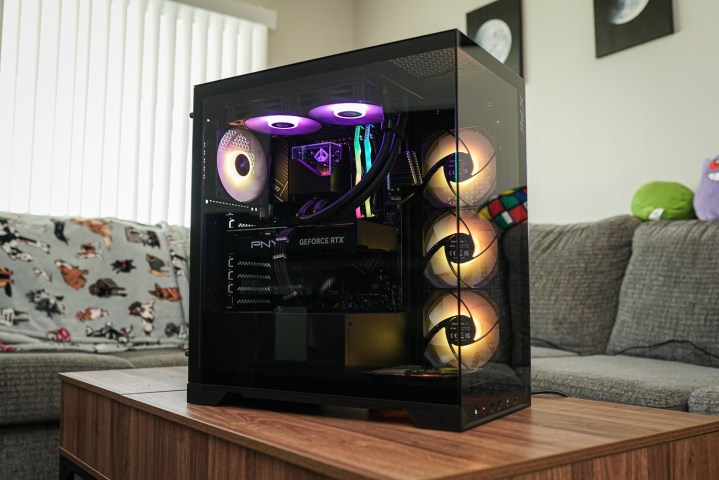
Starforge Navigator
The best custom gaming PC
Pros
- Excellent build quality
- No bloatware
- Solid performance
- Two-year warranty
Cons
- A bit expensive
- Extra fans add extra noise
| Specification: | |
| CPU | AMD Ryzen 5 7600X |
| GPU | Nvidia RTX 4070 |
| RAM | 32GB DDR5 |
| Storage | 1TB NVMe SSD |
Why you should buy this: It’s a high-quality gaming PC backed by excellent support.
Who’s it for: PC gamers looking for something more premium.
What we thought of the Starforge Navigator:
PC builders are a dime a dozen these days, but Starforge Systems stands out with solid build quality, great customer support, and fantastic value. Compared to building your own PC, there’s a modest build fee of around $200 to $300, which is backed up by a warranty and some of the best hardware you can buy.
Unlike a lot of PC builders, Starforge has a no-nonsense approach. Your PC arrives free of bloatware, and with some useful apps installed like the Nvidia App and Google Chrome. Performance is also great, matching what you’ll get with a custom-built desktop.
Despite the reasonable pricing, Starforge’s build quality is very high. In addition to a custom liquid cooler with Starforge’s logo, the Navigator includes a ton of fans and cable combs, keeping your build looking clean.
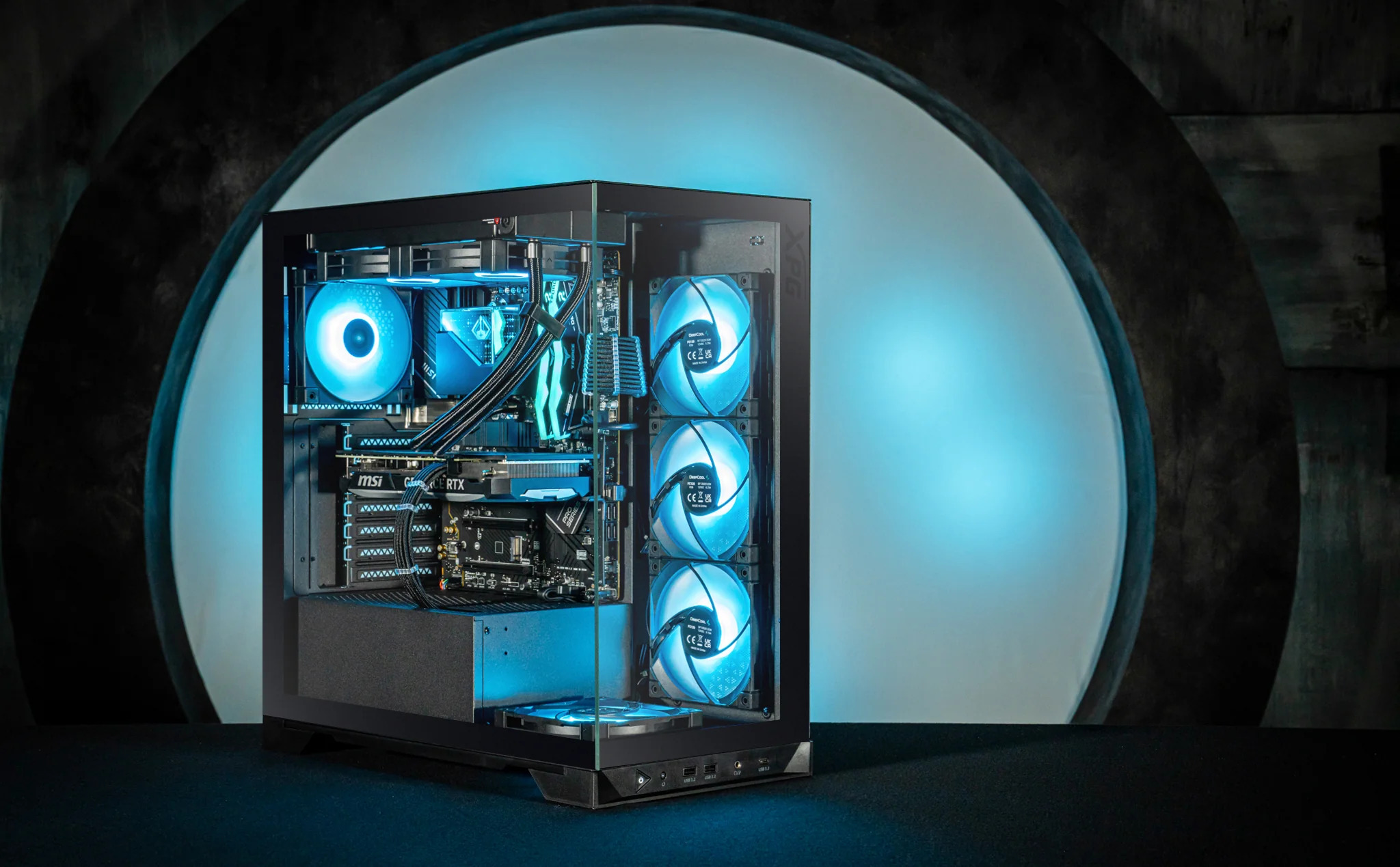
Starforge Navigator
The best custom gaming PC

Falcon Northwest Talon
The best high-end gaming PC
Pros
- Immaculate build quality
- Stunning level of detail
- The latest and greatest parts
- God tier warranty and support
- Great thermals
Cons
- Niche appeal
- Shockingly expensive
| Specification: | |
| CPU | Intel Core i9-14900KS |
| GPU | Nvidia RTX 4090 |
| RAM | 64GB DDR5 |
| Storage | 2TB NVMe SSD |
Why you should buy this: It’s a pure showcase of PC craftsmanship.
Who’s it for: PC enthusiasts with plenty of cash to spare.
What we thought of the Falcon Northwest Talon:
No one builds PCs like Falcon Northwest, which is why it’s the only company that occupies two slots on this list. It’s one of the few PC builders left that occupies the boutique niche, putting on display pure craftsmanship in its PC builds — assuming you can stomach the price.
At thousands of dollars depending on your specs, the Falcon Northwest Talon is only for those with plenty of cash to burn. You’re not only getting the highest-end CPU and GPU currently available but also a high-end mother board, power supply, and hard drives. Falcon Northwest maximizes every aspect of the Talon.
Performance is fantastic, but it’s the attention to detail with the Talon that stands out. Every system is validated through a long series of tests, and Falcon Northwest includes that paperwork in the box. You’ll also get a bag of Falcon’s own coffee and a mug. Everything screams premium.
Although you can get these same components for cheaper elsewhere, no one can match Falcon Northwest’s quality, support, and attention to detail.
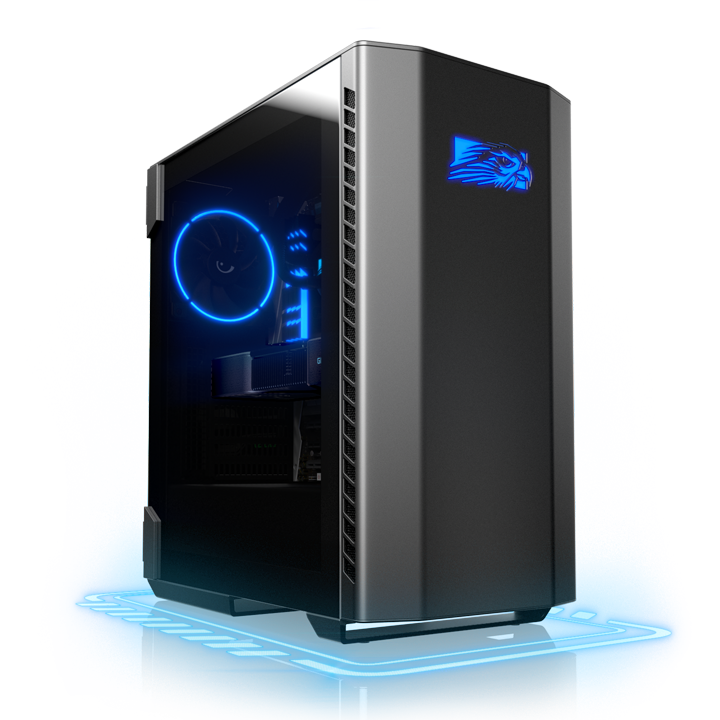
Falcon Northwest Talon
The best high-end gaming PC

Corsair One i500
The best gaming PC for the living room
Pros
- Excellent performance
- Beautiful finish
- One of the smallest gaming PCs you can buy
| Specification: | |
| CPU | Intel Core i9-14900K |
| GPU | Nvidia RTX 4090 |
| RAM | 96GB DDR5 |
| Storage | 2TB NVMe SSD |
Why you should buy this: It’s one of the smallest PCs you can buy, and it packs the most powerful hardware on the market.
Who’s it for: Gamers who want high-end hardware without taking up a lot of space.
What we thought of the Corsair One i500:
The Corsair One i500 shouldn’t work, but somehow it does. Corsair managed to pack the most powerful PC hardware money can buy, namely the Intel Core i9-14900K and Nvidia RTX 4090, inside a PC that isn’t much larger than a game console. And despite such a tightly-packed design, the One i500 sacrifices very little in the way of performance.
A big reason why the Corsair One i500 is such a stunning performer is because of its thermal design. Corsair packs everything in tightly, with fans on nearly every inch of the One i500. More importantly, Corsair leverages liquid cooling for both the CPU and GPU, vastly reducing the temperature of these power-hungry components.
Externally, the One i500 screams premium. The metal frame is hefty, and Corsair outfits the front of the case with a wooden finish. You’ll spend a lot to get your hands on the Corsair One i500, but the prebuilt shockingly makes every penny feel worth it.
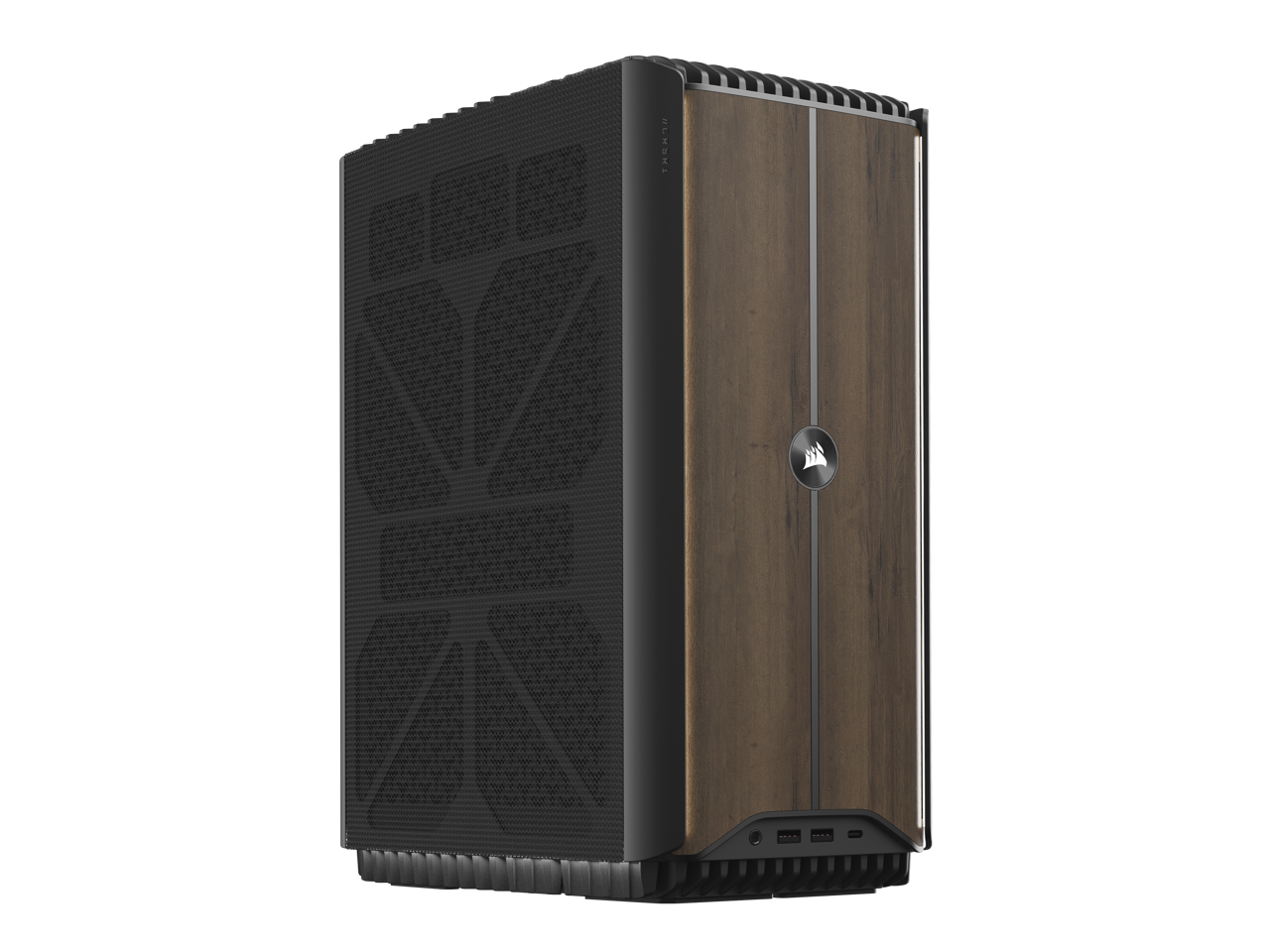
Corsair One i500
The best gaming PC for the living room

Dell XPS Desktop (8960)
The gaming PC for remote workers
Pros
- Flagship performance
- Understated, attractive design
- Relatively quiet
- Solid port selection
Cons
- Limited upgrade potential
- Expensive
| Specification: | |
| CPU | Intel Core i7-13700K |
| GPU | Nvidia RTX 4080 |
| RAM | 32GB DDR5 |
| Storage | 1TB NVMe SSD |
Why you should buy this: The Dell XPS Desktop 8650 doesn’t look like a gaming PC, but it comes with the right hardware to run the latest titles.
Who’s it for: Remote workers who need a professional PC during the day and a gaming PC at night.
What we thought of the Dell XPS Desktop 8960:
If you want to pick up a gaming desktop, but you’re not interested in learning about upgrading or tricking it out with RGB, the Dell XPS 8960 Desktop is a great option. It’s a stealth gaming PC that looks like an office desktop on the outside, but hides some of the most powerful components you can buy inside.
You can’t upgrade major components in the Dell XPS Desktop, which is almost always a downside. But you can at least trick out this PC with up to an Intel Core i9-13900 and Nvidia RTX 4080. You can even configure it with liquid cooling.
Configurations start as low as $750, with the first configuration with a discrete graphics card coming in at around $1,100. You’re giving up all of the trimmings that make a gaming PC look like one, but if you’re content to recycle your PC and upgrade a few years down the line, that’s not a big deal.
Although the XPS Desktop can fit into any office setting, we’re recommending it specifically for remote workers. You might not want to ask your boss to bill an RGB-ridden gaming behemoth; the XPS Desktop is much more reasonable, and it still has enough muscle for gaming after hours.
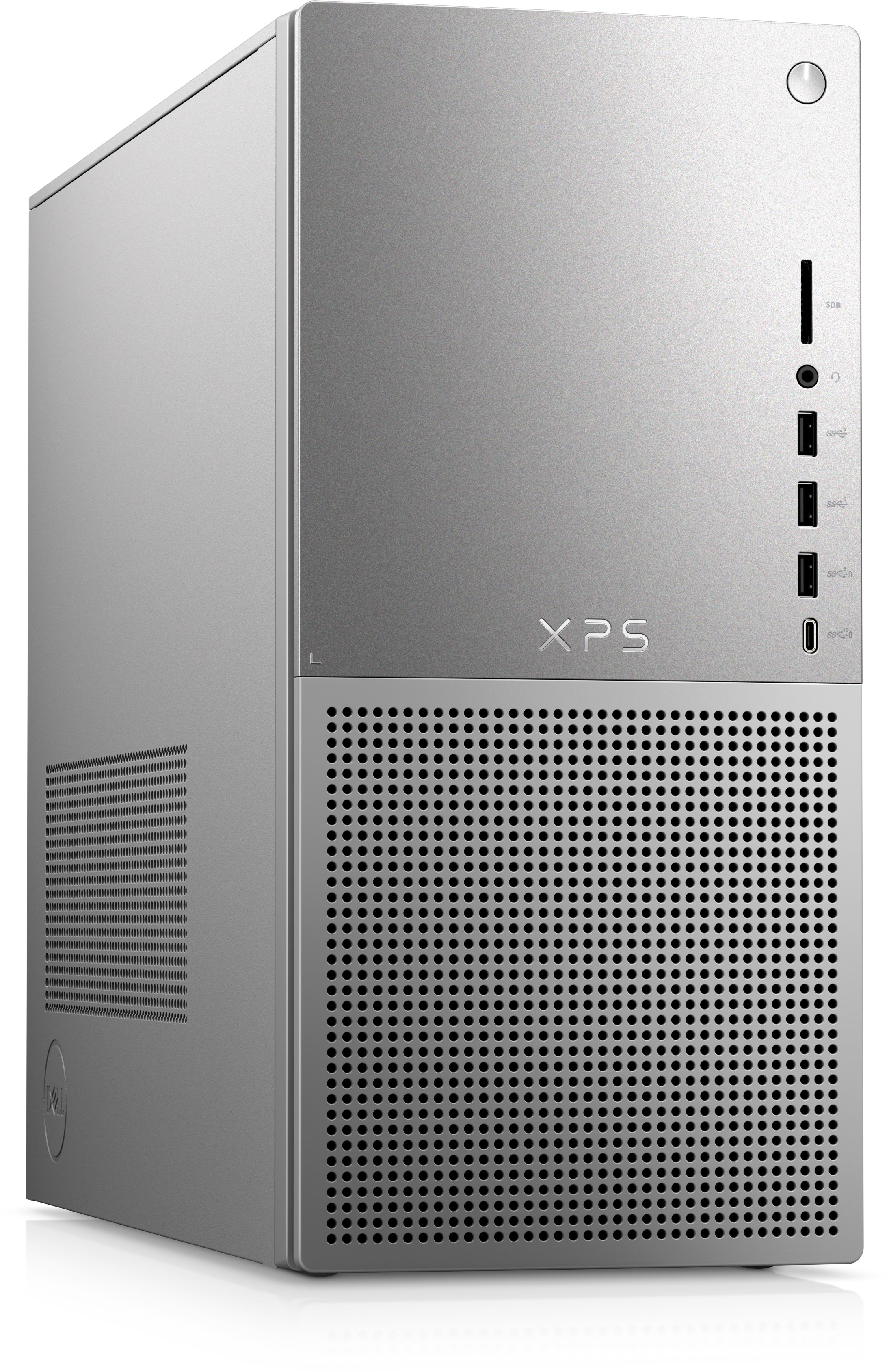
Dell XPS Desktop (8960)
The gaming PC for remote workers
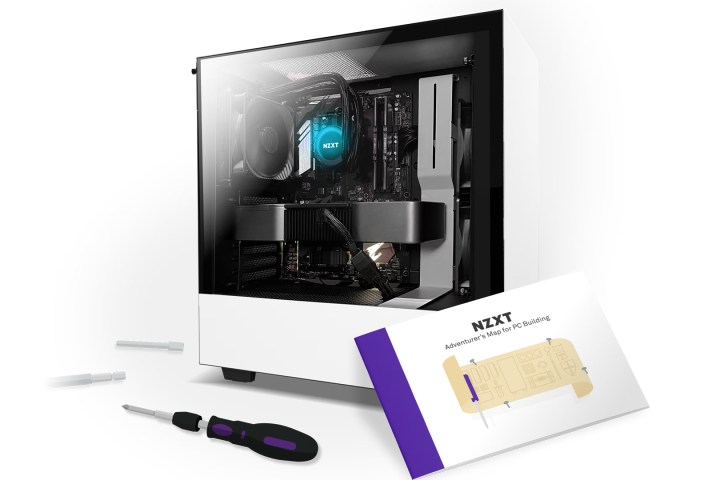
NZXT Streaming Plus BLD Kit
The best DIY gaming desktop
Pros
- Powerful
- Inexpensive
- Includes all the tools you need to build your own PC
Cons
- PC building isn’t for everyone
- Limited customization options
| Specification: | |
| CPU | AMD Ryzen 5 7600X |
| GPU | Nvidia RTX 4070 |
| RAM | 16GB DDR5 |
| Storage | 1TB NVMe SSD |
Why we chose this: The NZXT BLD Kit allows you to dip your toes into building a custom gaming PC and save some money in the process.
Who’s it for: Hobbyists who want to get into building PCs but don’t know where to start.
What we thought of the NZXT BLD Kit:
NZXT has a different approach to gaming desktops. Instead of shipping you a prebuilt machine, you get all of the components, tools, and an instruction manual to build the PC yourself. And don’t worry – you get all of that at a discount compared to getting a machine already built for you.
The BLD kits offer great value, and NZXT has several available. We’re recommending the Streaming Plus kit, which comes fitted with an eight-core Ryzen 7 5700X processor, an Nvidia RTX 3070 graphics card, and 16GB of RAM. Overall, the kit is about $200 than shopping for the cheapest parts yourself, rather than the anywhere from $500 to $1,000 that brands usually charge as a building fee.
If you can’t be bothered, NZXT also offers its custom BLD program. Unlike most system builders, NZXT charges a flat $110 building fee. Otherwise, you’re paying the exact same price for the components that you would if you bought them individually.
PC building isn’t for everyone, but NZXT’s BLD program offers a cost-effective and simple way to get into the hobby.

NZXT Streaming Plus BLD Kit
The best DIY gaming desktop
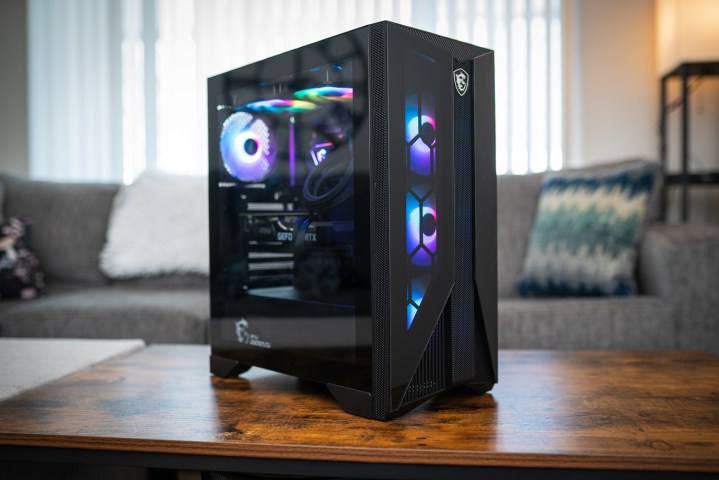
MSI Aegis RS 14
The best gaming PC for beginners
Pros
- Cheaper than building yourself
- All MSI components
- Dense, bright RGB lighting
- Excellent gaming and processor performance
- Fantastic connectivity and expansion options
Cons
- Poor cable management
- Twist ties used for some cables
- Case isn’t the best
| Specification: | |
| CPU | Intel Core i7-14700KF |
| GPU | Nvidia RTX 4070 Super |
| RAM | 32GB DDR5 |
| Storage | 2TB NVMe SSD |
Why we chose this: It’s a no-fuss, powerful gaming PC that won’t break the bank.
Who’s it for: PC gamers who want a powerful PC and don’t need to mess around with upgrades.
What we thought of the MSI Aegis RS 14:
You get a lot of PC for your dollar with the MSI Aegis RS 14. The design of this desktop has stayed the same the past couple of generations, but the latest version combines up to an Intel Core i9-14900KF with up to an RTX 4080 Super, giving you access to some of the most powerful hardware money can buy.
Pricing is what really stands out for this desktop, though. Our recommended configuration comes with a Core i7-14700KF and an RTX 4070 Super, which you can grab for about $2,150. It’s a solid price considering the hardware inside, especially when you factor in the fact that MSI uses a 240mm all-in-one liquid cooler for the processor.
On top of that, MSI includes a solid mechanical gaming keyboard and mouse in the box. They aren’t top-tier peripherals, but they’re more than enough to get beginners started with PC gaming.

MSI Aegis RS 14
The best gaming PC for beginners

CLX Hathor
The best dual gaming PC
Pros
- Beautiful design and build quality
- Two PCs in the size of one case
- Flagship hardware support
Cons
- Very expensive
- Dual PCs aren’t required for most people
| Specification: | |
| CPU | Intel Core i9-13900K |
| GPU | Nvidia RTX 4080 |
| RAM | 32GB DDR5 |
| Storage | 2x 1TB NVMe SSD, 1x 4TB HDD |
Why we chose this: It’s a monster gaming PC that pulls double duty.
Who’s it for: Streamers who need a dual PC setup but don’t have the space for two PCs.
What we thought of the CLX Hathor:
What’s better than one monster gaming PC? Two, obviously. The CLX Hathor is insane, packing two full PCs into a single case. One if a high-end gaming rig fit with one of the latest CPUs from AMD or Intel, along with one of the latest graphics cards from AMD or Nvidia. The second is an Intel NUC that pull lightweight duty so you don’t have to bog down one machine.
CLX allows you to customize just about every aspect of the PC, as well. There are the core components like your GPU, CPU, and RAM, but you can even tweak your cooler, multiple storage options, and even customize the Lian Li case the PC ships in.
It’s an excellent PC, assuming you need all of the power it offers. The Hathor starts at $4,100, and it only goes up from there. This is a high-end PC for high-end streamers, who need a secondary PC holding the work of streaming so your main PC can focus on gaming.

CLX Hathor
The best dual gaming PC

Asus ROG Ally X
The best portable desktop PC
Pros
- Small performance boosts in some games
- Redesigned Armoury Crate software
- Much more comfortable
- Longer battery life
Cons
- MicroSD card concerns
- Windows quirks remain
| Specification: | |
| CPU | AMD Ryzen Z1 Extreme |
| GPU | AMD Ryzen Z1 Extreme |
| RAM | 24GB LPDDR5X |
| Storage | 1TB |
| Storage | 1TB |
| RAM | 24GB LPDDR5X |
| Storage | 1TB |
| RAM | 24GB LPDDR5X |
| Storage | 1TB |
| RAM | 24GB LPDDR5X |
| Storage | 1TB |
| RAM | 24GB LPDDR5X |
| Storage | 1TB |
| RAM | 24GB LPDDR5X |
| Storage | 1TB |
| RAM | 24GB LPDDR5X |
| Storage | 1TB |
| RAM | 24GB LPDDR5X |
| Storage | 1TB |
Why we chose this: It’s the most powerful Windows handheld, and it supports external GPUs.
Who’s it for: Gamers on the go who still want a desktop setup.
What we thought of the Asus ROG Ally X:
The Asus ROG Ally X doesn’t look like a desktop, and it’s not. You can easily turn it into one, though. Asus’ handheld comes with two USB-C ports, both of which support USB 4. That allows you to easily connect an external GPU enclosure and transition from a handheld to a full-fledged desktop with a single cable.
The flexibility that the ROG Ally X affords is something special. When you’re out and about, you have the most capable Windows handheld money can buy. The Ryzen Z1 Extreme processor still puts in impressive work, and the bump to 24GB of memory provides an edge in some games. You also have 1TB of storage, and support for M.2 2280 SSDs, giving you plenty of room for that desktop experience.
Although you don’t have quite the CPU grunt of a full desktop, access to 24GB of memory and up to 8TB of storage certainly gives the ROG Ally X some legs as a desktop PC. If you plan on running at higher resolutions as well, the external GPU will play much more of a role than the CPU inside the handheld.

Asus ROG Ally X
The best portable desktop PC
Frequently Asked Questions
PC vs. laptop for gaming
While you can play on the go with a gaming laptop outfitted with a discrete graphics card, a gaming desktop will deliver more flexibility, power, and performance for serious gamers. With more space inside a desktop tower, thermal management is generally better, which leads to stronger graphics and processing performance without the fear of throttling.
Another benefit of going with a desktop is that there is more space to perform upgrades in the future, so you can add more memory or storage, swap out your graphics card, and upgrade your motherboard and processor down the road. When shopping for a gaming desktop, you should look for key features like upgradability, expandability, and support for the latest protocols, like Thunderbolt 3, which could help extend the life of your investment.
What’s the best gaming PC for beginners?
The best gaming PC for beginners is the Alienware Aurora R16. It’s relatively affordable and comes with the latest hardware. It also comes with excellent support, so you have options to get help if something goes wrong with your PC.
For configurations, you want to pay attention to the GPU and CPU. For beginners, we recommend the Nvidia RTX 4060 for 1080p gameplay, paired with either an AMD Ryzen 5 7600X or Intel Core i5-13600K.
Gamers will also want to have enough RAM — we suggest at least 16GB of memory — and fast storage. Moreover, taking the dual-drive route means you don’t need to invest in an expensive solid-state drive with large storage. This allows you to pair a more modest-capacity SSD with a larger hard drive to store all the large media libraries for your game.
Can gaming PCs be used for work?
Most definitely. Manufacturers like HP recognize that gamers don’t just play games — office workers want to stay entertained during their downtime, too. All that’s needed to play games is a capable processor, a strong enough discrete graphics card, and enough memory to keep the entire system running smoothly.
If you’re looking to save money by using one desktop for gaming and for your productivity tasks, you’ll want to choose a PC or one of the best laptops with more understated aesthetics that will blend in better with your office decor. Once you have the right PC selected, just pick out a few games and have fun.
Is PC gaming dying?
Absolutely not. With sales of general-purpose desktops stagnating in recent years, manufacturers like HP and Lenovo are investing more resources into their gaming brands to fuel growth.
With new hardware features supported on gaming PCs — from VR and augmented reality to real-time ray tracing — developers will have plenty of new technologies to leverage in order to tell visually engaging stories through their games.

